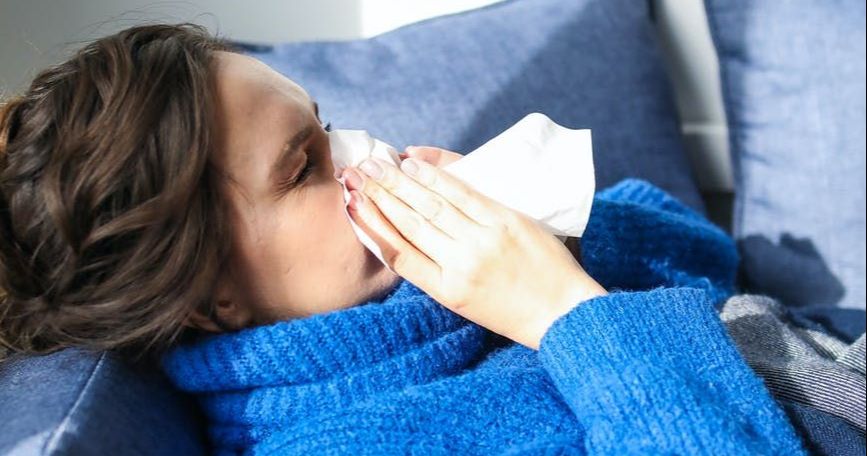There's literally no human being on earth who didn't experience itchy throat at least once in their lives. An itchy throat is a common sign of allergies, flu, or bacterial infection. Luckily, most of the time, scratchy throats can be treated with simple and useful remedies. Although irritated throats can have many causes, such as allergic rhinitis, bacterial or viral infections, people associate it mostly with the coronavirus. Due to the pandemic, most of the world's population has been infected with the new SARS-COV-2. The symptoms also include an irritated throat. While other infections can cause an itchy throat, now it's often associated with coronavirus. However, to be sure what causes your itchy throat, you must visit your doctor and discuss your symptoms. They'll give you the right recommendations. Research might help you, so read further to understand what causes you an itchy throat.
The symptoms of Covid-19
Coronavirus (Covid-19) is a virus that can cause a disease associated with the common cold. This disease outbreak originated in China in 2019. It is also known as the SARS-CoV-2 (severe acute respiratory syndrome), and in March 2020, the World Health Organization declared a world pandemic. Now, you know for sure all about coronavirus, but did you ever have any symptoms? Signs of Covid-19 can appear between 2 to 14 days since exposure. After all this time, if you didn't have any symptoms, you haven't been infected. But otherwise, here are the symptoms of the Covid-19, which includes the most common ones, the loss of taste and smell. Other symptoms are sore throat, headache, muscle pain, runny nose, chest pain, cough, difficulty breathing, and conjunctivitis.
The list isn't finished; people have reported other symptoms, such as nausea, diarrhea, vomiting, and rash. Children and older adults are known to be at higher risk than young adults. But children can have similar symptoms as adults, which means they generally have mild illness. Coronavirus' symptoms can vary from mild to severe. It's also possible that some people have all symptoms, some have less, and some not at all. It means that they're asymptomatic, which means that they can be infected with the virus without realizing it. Also, people with existing chronic illnesses have a higher risk of being infected with Covid-19. If you or a loved one suffer from a medical condition, make sure that you fully respect the precautionary measures, to avoid increasing the risk of serious illness from coronavirus.
Some of the conditions include heart disease, chronic kidney disease, diabetes, cancer, weakened immune system, obesity, liver disease, asthma, high blood pressure, brain, and nervous system condition, etc. Also, other underlying health conditions may increase your risk of being infected with Covid-19. If you have trouble breathing, feel tired all the time, chest pain, cough, or lack of taste and smell, please contact your doctor as soon as possible and wait for guidance. During the pandemic, it's very important to protect yourself and protect others around you. Wear a mask and gloves whenever you expose yourself to closed or overcrowded spaces. The risk factors that may expose you to the virus include close contact or being coughed or sneezed on by an infected person.
Should you be concerned?
Although an itchy throat can be a symptom of Covid-19, it may also include common causes such as food allergies, acid reflux, allergic rhinitis, side effects of medication, smoking, infections, etc. Should you be concerned? It's hard to say what to do and how you should feel about your symptoms. As mentioned before, some people may not experience any of the coronavirus symptoms. However, if you'll experience symptoms associated with Covid-19, the best thing to do is call your doctor, stop seeing other people, go into lockdown until you get the Covid-19 test. If it's negative, you shouldn't be concerned, but make sure you keep the distance from anyone else and follow the specialist's recommendations. However, there are many remedies for itchy throat you can try at home; a simple search on the internet, and you’ll find everything you need to know, including the causes and how to simply treat it at home.
Causes of itchy throat
A scratchy and uncomfortable feeling in your throat can have a lot of causes. Allergies are known to be the most common for itchy throats. Animal hair, dust, pollen, peanut butter, and grass are causes that can make your throat itchy. These allergies can range from minor to severe. Also, inhaling chemicals, cigarettes smoke, cleaning products, and pesticides can lead to itchy throat. The common cold can also start an itchy throat. Although an itchy throat can feel uncomfortable, you must learn how to distinguish the symptoms. An itchy throat shouldn't feel rough, making it hard for you to breathe. Generally, you may feel itchy, scratchy, and swollen. To eliminate these symptoms, you may treat your itchy throat at home with simple and natural remedies to relieve inflammation.
Natural remedies for itchy throat
At-home remedies for itchy throat including drinking plenty of water to hydrate your neck, gargle with warm salt water to relieve inflammation, or using throat sprays. Ingredients such as menthol, eucalyptus oil, and benzocaine help you treat an itchy throat. However, preventing an itchy throat or a cold is by washing your hands frequently with water and soap. Other home remedies for itchy throat include:
- eating honey (preferably raw honey)
- drinking hot lemon, ginger, horseradish, or honey tea two or three times a day
- drink apple cider vinegar (with warm water)
- drink milk and turmeric every evening
- herbal teas (ginkgo, chamomile, milk thistle, licorice, red clover, etc.)
These are just a few of the home remedies you can do to treat your itchy throat. However, some other life habits can lead you to an itchy throat and cough often. You can make some changes, including quitting smoking, avoid caffeine, alcohol, too cold drinks, don't go outside during flu season, etc. If you're experiencing an itchy throat, and home remedies don't seem to help you, make sure you contact your doctor to give you a proper treatment.

